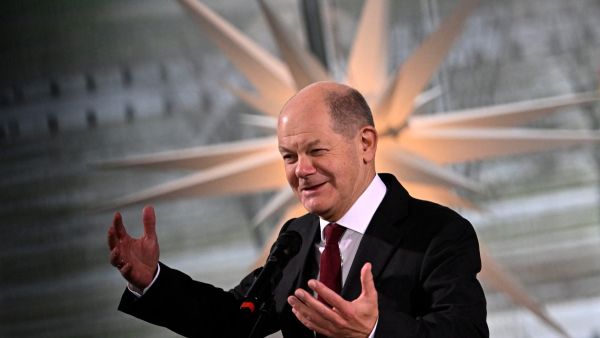ALBAWABA – German Chancellor Olaf Scholz's coalition has reached a last-minute deal to end Germany’s budget crisis, news agencies reported Wednesday, after a constitutional court ruling upended the government’s spending plans and plunged it into a crisis.
"There is an agreement," an unnamed source told Agence France-Presse (AFP), adding that details will be unveiled at midday.
Germany’s ruling alliance sealed an agreement on a revised 2024 budget after last month’s ruling, which limited the government’s use of off-budget funds, Bloomberg confirmed.
The court found that the government had broken a constitutional debt rule when it transferred 60 billion euros ($65 billion) earmarked for pandemic support to a climate fund.
Finance Minister Christian Lindner underlined that the coalition needed to find a way to plug a 17-billion-euro gap, according to AFP.
Scholz, Lindner and Economy Minister Robert Habeck negotiated through the night to finalize the deal that would resolve the Germany’s budget crisis, Bloomberg reported.

Gov’t coalition overcomes Germany’s budget crisis - Shutterstock
The Germany’s budget crisis came as the German economy was already struggling, and fanned fears that hefty subsidies to attract foreign investments could be cut. This would have delayed crucial plans for the country's transition to carbon neutrality.
With an ageing population, the conservatives have argued that overburdening younger generations with more borrowings would be irresponsible. Hence, the government resorted to extra-budgetary funds.
Notably, the debt rule, which came into force in 2011 under former chancellor Angela Merkel, was meant to underline Germany's commitment to fiscal prudence.
The debt rule, or debt brake rule, prevents the state from borrowing more than 0.35 percent of annual Gross Domestic Product (GDP) to cover a structural deficit, barring exceptional circumstances.
Critics of the law, according to AFP, view it as a manifestation of Germany’s obsessions that is halting the EU heavyweight's growth potential. At a time when Europe's biggest economy is already at risk of a recession, calls have been growing for Berlin to open its coffers wider.









